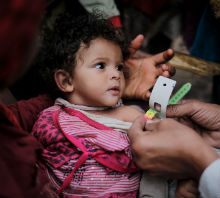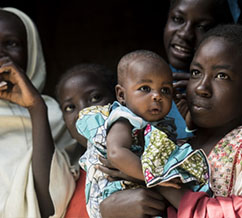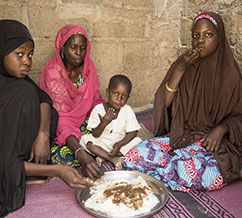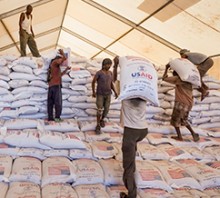Speeches Shim
The United States announces nearly $112 million in additional humanitarian assistance to help people in Nigeria and surrounding countries in the Lake Chad region affected by the ongoing crisis.
Strong winds and heavy rainfall on May 22 affected nearly 2,400 households and damaged nearly 1,700 structures in displacement sites across three Local Government Areas (LGAs) in Borno, according to the International Organization for Migration (IOM). USAID Disaster Assistance Response Team (DART) partners continue to provide shelter and water, sanitation, and hygiene (WASH) support to vulnerable populations throughout northeastern Nigeria during the June-to-September rainy season.
The upcoming June-to-August rainy season will likely prompt additional humanitarian needs for an estimated 536,000 vulnerable people in northeast Nigeria, according to the Operational Inter-Sector Working Group (OISWG)—the body responsible for humanitarian inter-sector coordination activities in northeastern Nigeria, comprising UN agencies, non-governmental organizations (NGOs), and other stakeholders.
The International Organization for Migration (IOM) identified approximately 1.72 million internally displaced persons (IDPs) in Adamawa, Borno, and Yobe states as of mid-April, an increase of nearly 85,700 people—5.5 percent—from February. Borno hosts approximately 83 percent of the IDP population in the three states.
Increased fighting between government and opposition forces in Jonglei and Unity states since mid-April has generated population displacement, disrupted relief operations, and exacerbated needs. Violence associated with clashes in Unity resulted in at least three South Sudanese humanitarian worker deaths during April; the UN has recorded at least 100 aid worker deaths in South Sudan since the beginning of the crisis in December 2013.





Comment
Make a general inquiry or suggest an improvement.